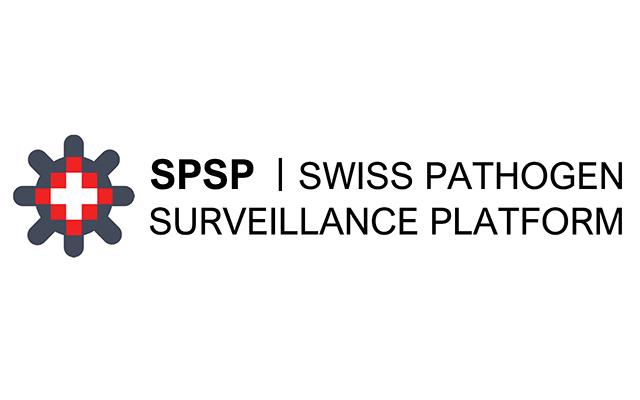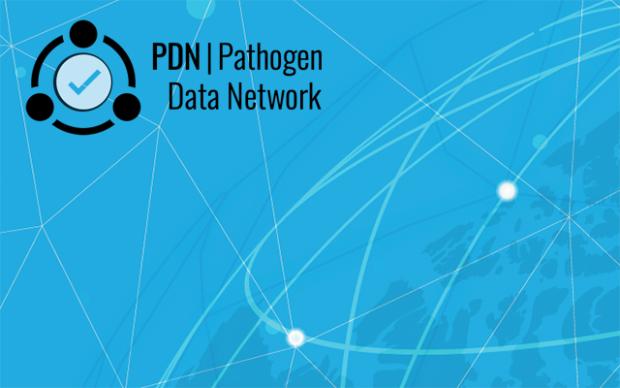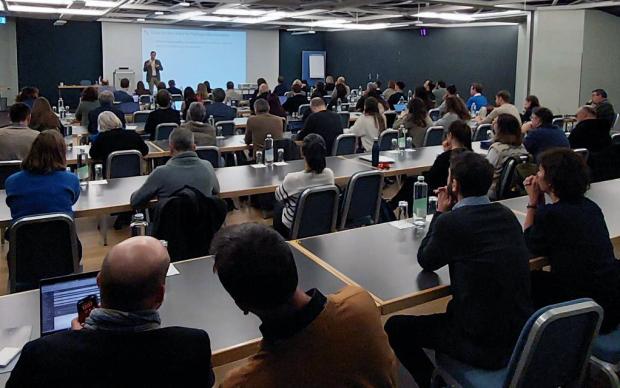Representatives from Swiss and EU government agencies discussed how the Swiss Pathogen Surveillance Platform (SPSP) can further support a variety of government initiatives for epidemic preparedness and food safety at the recently held SPSP annual meeting. The event also highlighted new developments in this SIB-hosted resource.
SPSP is Switzerland’s national pathogen genomic platform that supports pathogen surveillance programmes. It enables real-time monitoring of outbreaks and circulating strains using whole genome sequencing data and associated metadata from bacteria, viruses, and fungi. The platform provides actionable results for public health from a One Health perspective, i.e., recognizing the interconnection between human, animal, and environmental systems.
SPSP has been mandated by the Swiss Federal Office of Public Health (FOPH) since 2021 to provide data on respiratory viruses of concern and collaborates with the Federal Food Safety and Veterinary Office (FSVO). The platform is hosted at SIB and operated in collaboration with university hospitals and academic institutions in Basel, Lausanne, Geneva, Bern, and Zurich. It contributes to SIB’s Centre for Pathogen Bioinformatics and was recognized as a SIB Resource in 2025.
Extending SPSP’s role as a national pathogen genomics platform
SPSP already supports genomic surveillance of infectious disease by centralizing and standardizing all genomic sequences collected in Switzerland for pathogens of concern – namely, three respiratory viruses (SARS-CoV-2, influenza, and RSV) and one foodborne bacterium (Listeria). The platform’s annual general meeting discussed its extension to:
SPSP is Switzerland’s national pathogen genomic platform that supports pathogen surveillance programmes. It enables real-time monitoring of outbreaks and circulating strains using whole genome sequencing data and associated metadata from bacteria, viruses, and fungi. The platform provides actionable results for public health from a One Health perspective, i.e., recognizing the interconnection between human, animal, and environmental systems.
SPSP has been mandated by the Swiss Federal Office of Public Health (FOPH) since 2021 to provide data on respiratory viruses of concern and collaborates with the Federal Food Safety and Veterinary Office (FSVO). The platform is hosted at SIB and operated in collaboration with university hospitals and academic institutions in Basel, Lausanne, Geneva, Bern, and Zurich. It contributes to SIB’s Centre for Pathogen Bioinformatics and was recognized as a SIB Resource in 2025.
- providing genomic surveillance data to a Swiss national data hub being developed for the notification, surveillance, and combating of communicable diseases (NASURE project) under the country’s revised Epidemics Act;
- supporting new European food safety requirements, as the Swiss national depository for whole genome sequences of microorganisms used in the food chain (European Food Safety Authority (EFSA) Whole Genome Sequencing System)
Increased user-friendliness and new features
The meeting also highlighted major milestones achieved over the past year:
- a revamped SPSP website to increase visibility to a broader audience and provide all documentation in one place;
- a new private portal where authorized users can access non-public data on bacterial genomes and monitor outbreaks in near real time;
- extension of the public portal to include open genomic data on two new viruses (influenza and RSV) as well as a tool for visualizing pathogen evolution and spread in real time (through the Nextstrain resource);
- integration of additional quality control and analysis pipelines, notably for SARS-CoV-2 assembly (through the V-pipe resource);
- inclusion of Swiss data from SPSP in Pathoplexus, a global open-source database dedicated to the efficient sharing of human viral pathogen genomic data.
A strengthened Swiss ecosystem for epidemic preparedness
The integration of Nextstrain and V-pipe with SPSP contributes to the work of SIB’s Centre for Pathogen Bioinformatics to create a scalable, sustainable ‘toolbox’ for pathogen genomic surveillance. By strengthening bioinformatics infrastructure – as well as improving national and global collaboration and integrating the latest research advances – the Centre reinforces epidemic preparedness and keeps Switzerland at the forefront of pathogen bioinformatics.
An important meeting for advancing pathogen surveillance
Fifty-five participants joined the SPSP annual meeting, coming from 15 institutions including Swiss federal offices, Swiss universities and hospitals, and the European Food Safety Authority. The federal administration was particularly well represented, with 5 members from the Federal Office of Public Health, 3 from the Federal Food Safety and Veterinary Office, 3 from the Institute of Virology and Immunology, and 3 from Agroscope. Their attendance highlights the crucial and evolving role of SPSP for pathogen surveillance and research in Switzerland.











